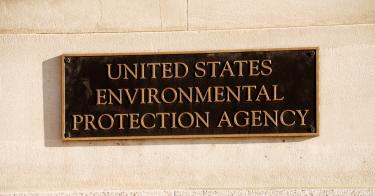Federal agencies issue regulations that affect almost every facet of our lives. Science often provides the underlying rationale for these laws, so it’s critical that agencies get the science right.
Many regulators and big government advocates want Americans to simply trust that the agencies are using the best available science. However, the American system of government doesn’t simply place blind faith in any branch of government, especially unelected and unaccountable agency officials.
To help make sure that Uncle Sam gets the science right, President Trump should issue an executive order to direct a government-wide commitment to promoting transparency in the use of science. This is far from a radical idea. In 2009, President Obama issued a memorandum on scientific integrity, arguing that the public must be able to trust the science and the scientific process used by agencies.
Mr. Obama’s memorandum, though, was fairly general in nature. The Trump administration should fill in some details, including how to promote this public trust. Promoting transparency would be central to achieving this objective, and there are many ways to do so. The following are just two specific examples.
First, agencies should make publicly available the scientific studies used in rule making. This would include making underlying data and assumptions, models, and computer codes available. It also means explaining why some studies were used while other credible studies were excluded. Basically, everything that is required to properly evaluate the science and the scientific process should be made public.
As a result, a wide range of experts can test the science and provide informed comments to the agencies during any rule-making process.
To its credit, the Environmental Protection Agency proposed a rule that would make important scientific information available to the public. This rule should be noncontroversial; but it hasn’t been. Many critics of EPA’s efforts assert that making this information available would violate privacy protections and improperly release confidential business information.
These narrow concerns may have some merit, but they should not be used as a blanket excuse to block public access to this information. Assuming these concerns are applicable in a specific situation, there are workarounds, such as redacting information.
Then there are claims that academic peer review should be sufficient without public access to the science. This notion completely ignores basic democratic principles of a meaningful public voice in how laws are developed. It also completely ignores the significant problems that pervade academic peer review processes.
Second, agencies should draw clear distinctions between science and policy. Science doesn’t answer policy questions, but informs policy decisions by providing answers to objective questions. As a result, science shouldn’t be used as a cover for pushing policy and ideological agendas.
For example, the 2015 Dietary Guidelines Advisory Committee was charged with providing dietary advice but then veered off its scientific mission. Instead of staying focused on nutrition science, the panel started to examine how climate change and environmental sustainability should play a role in dietary advice. Committee members allowed their environmental policy preferences to influence what should have been objective scientific work about the nutritional needs of humans.
When science is conflated with policy, agencies and defenders of their actions can assert that their policy conclusions are in fact science and therefore objectively true, and those who oppose their policy and ideological agendas are merely anti-science. This problem is frequently seen on climate change: those who don’t support specific policy prescriptions to address climate change are labeled as “deniers.”
A commitment to transparency is a process change that neither favors nor disfavors specific policies or the use of regulation. Agency science shouldn’t become so entrenched that agencies fight to protect their science instead of doing everything they can to get to the truth. The goal should be to ensure that, when federal agencies develop regulations, the policy choices made are based on the best available science.
This piece originally appeared in The Washington Times



